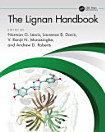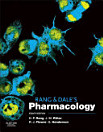Dictionary of Flavonoids
Acerca de este libro electrónico
Due the potential health benefits, research into flavonoids and their potential beneficial effects on human health continues unabated. Dictionary of Flavonoids with downloadable resources lists all known flavonoids (approximately 13,000) in a single volume. It details chemical structures, physical properties, and biological source, and also includes a concise bibliography. Derived from the well-respected Dictionary of Natural Products, it is presented in a compact dictionary format, and is an invaluable reference source for all those working in this area. The book is accompanied by downloadable resources that are fully searchable by chemical structure as well as by physical properties and chemical names.
Organized in alphabetical order, each page is packed with authoritative information that readers can easily access. The book and downloadable resource combination gives researchers powerful tools for unlocking and utilizing the secrets held within the colors of the plant kingdom.
Acerca del autor
John Buckingham is a former lecturer in organic chemistry at the University of London. He has been involved with the Chapman & Hall/CRC chemical database since its inception in 1980, initially as a Chapman & Hall employee, more recently as editorial consultant. From the database has been produced various editions of the Dictionary of Organic Compounds and the Dictionary of Natural Products (both of which have been for some years solely electronic). In addition, he compiled (with W. Klyne and later with R. A. Hill), two editions and supplements of the Atlas of Stereochemistry and has coauthored several other specialist dictionaries in the Chapman & Hall/CRC series. He is also the author of the popular science books Chasing the Molecule and Bitter Nemesis: the Intimate History of Strychnine.
V. Ranjit N. Munasinghe was formerly a senior lecturer in organic chemistry at the University of Colombo, Sri Lanka; research officer and visiting lecturer at Birkbeck College, University of London; and a research fellow in the chemistry department of Imperial College, University of London. He was also a senior research scientific officer at the National Institute for Medical Research (NIMR, MRC), London. With a B.Sc from the University of Colombo, Sri Lanka; Ph.D from Birkbeck College (1978); and DIC from Imperial College, University of London (1994); he has about 40 years of research and teaching experience in organic chemistry. Specializing in carbohydrate chemistry, his main areas of research included photochemical synthesis, deoxy sugars, branched chain sugars, C-glycosides, trisaccharides, and fluorescent conjugates of sialic acids. He has been involved with Chapman & Hall/CRC chemical databases since 1983 and has compiled (with Prof. P.M. Collins) Carbohydrates (1987) and Dictionary of Carbohydrates (1st Ed. 1998, 2nd Ed. 2006). He was also a






